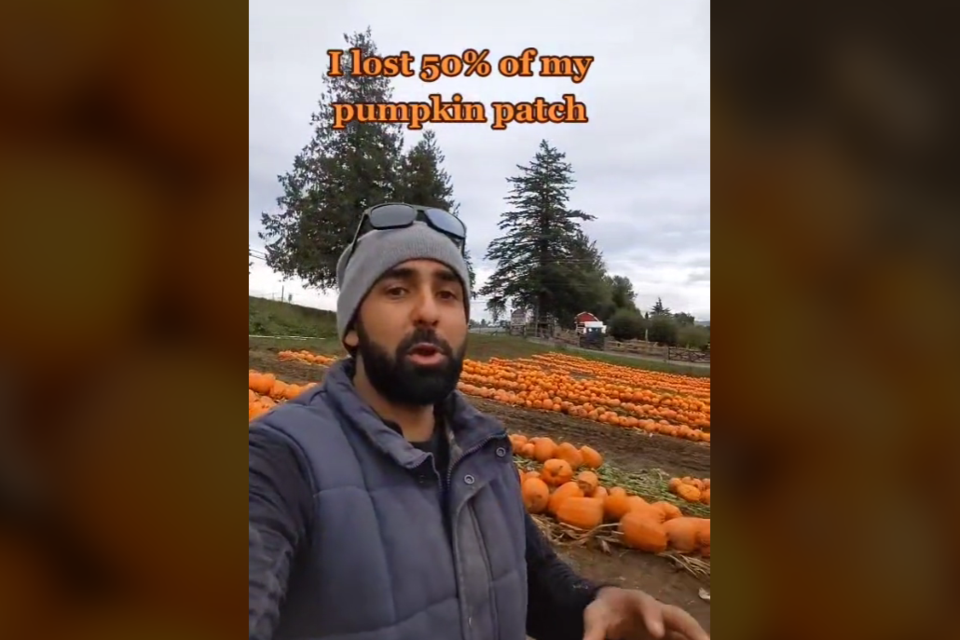After half the pumpkins in one Lower Mainland farm became too soft too soon, the local community rallied behind them to carry them through the fall months.
Maan Farms in Abbotsford posted to their social media channels on Saturday (Oct. 2) showing thousands of pumpkins that became much too soft to hold the shape of a jack-o-lantern by Halloween. In a recent interview with Vancouver Is Awesome, farmer Amir Maan said some loss is to be expected but usually only around 15 per cent.
Maan added that while he isn’t sure exactly what caused the mass die-off, he suspects a combination of the extreme temperatures seen in July’s heat wave sped up the pumpkin’s ripening cycle too soon and recent heavy rains saturated them.
Soon after Maan shared his story, his farm was able to purchase replacement pumpkins from nearby farms, ensuring they would still be able to sell the gourds up to the spookiest day of the year.
"It's not that we are able to sell our patch, we're also able to purchase pumpkins and put money in other farmers' pockets,” Maan said. “It's just a big butterfly effect."
But what to do with the bad pumpkins? With the attention Maan’s story received, not only was purchasing fresh pumpkins made possible, but local farmers wanted to assist Maan’s farm in any way they could.
"That support has been amazing,” Maan said. “They want to be able to help in some sort of way and I thought the best way to do that would be to give these pumpkins to local animal sanctuaries."
As for what non-farmers can do, Maan said the most helpful thing anyone can do is support their local farmers and pumpkin patches this season.
"That local footprint or that local butterfly effect of buying locally, it doesn't just affect the farmer, it affects their employees who may be students,” he said. "We can't really compete with the pricing from big box stores. But that money that you put towards a local farmer, it pays dividends for years to come."



